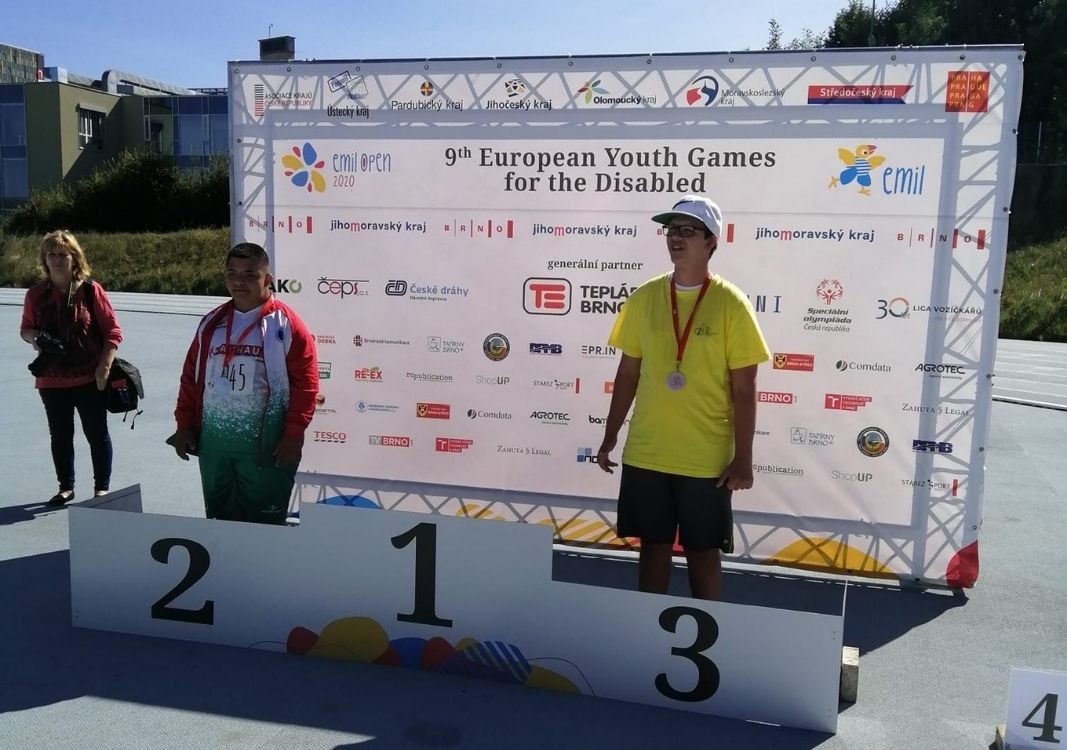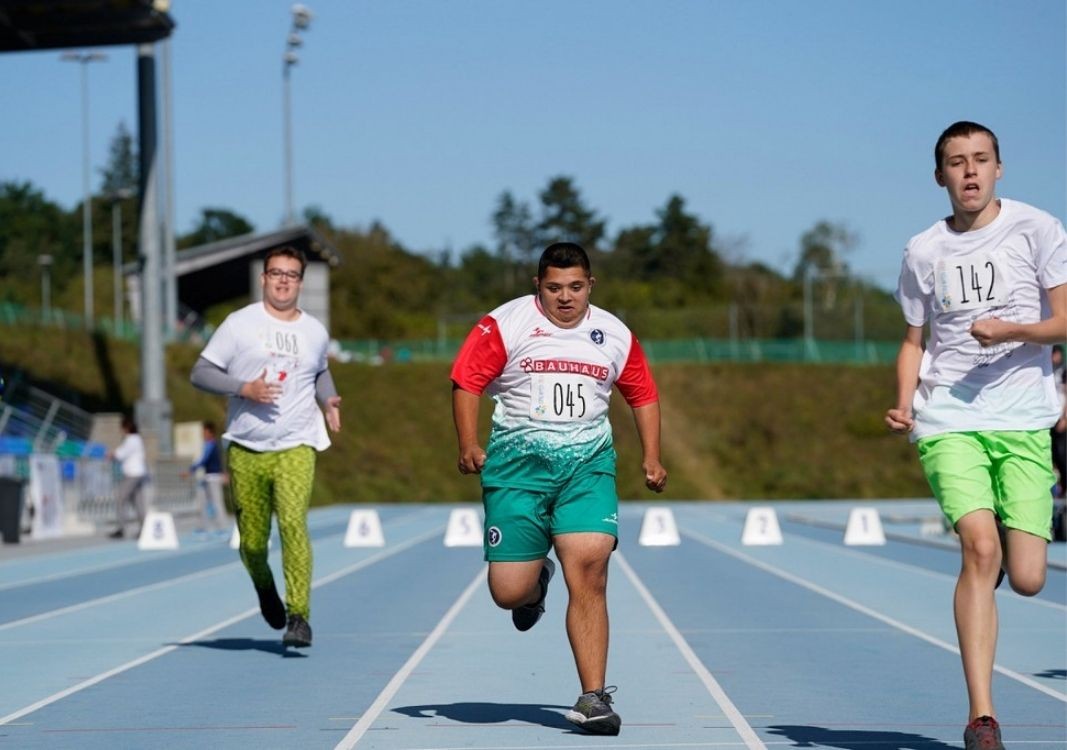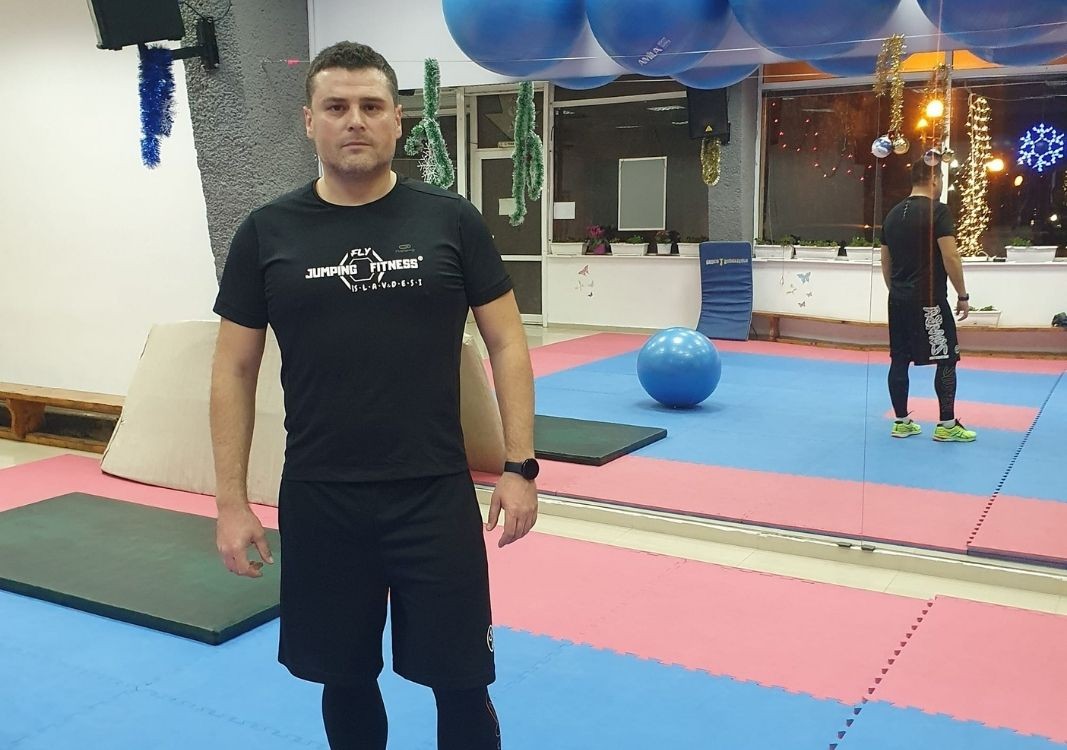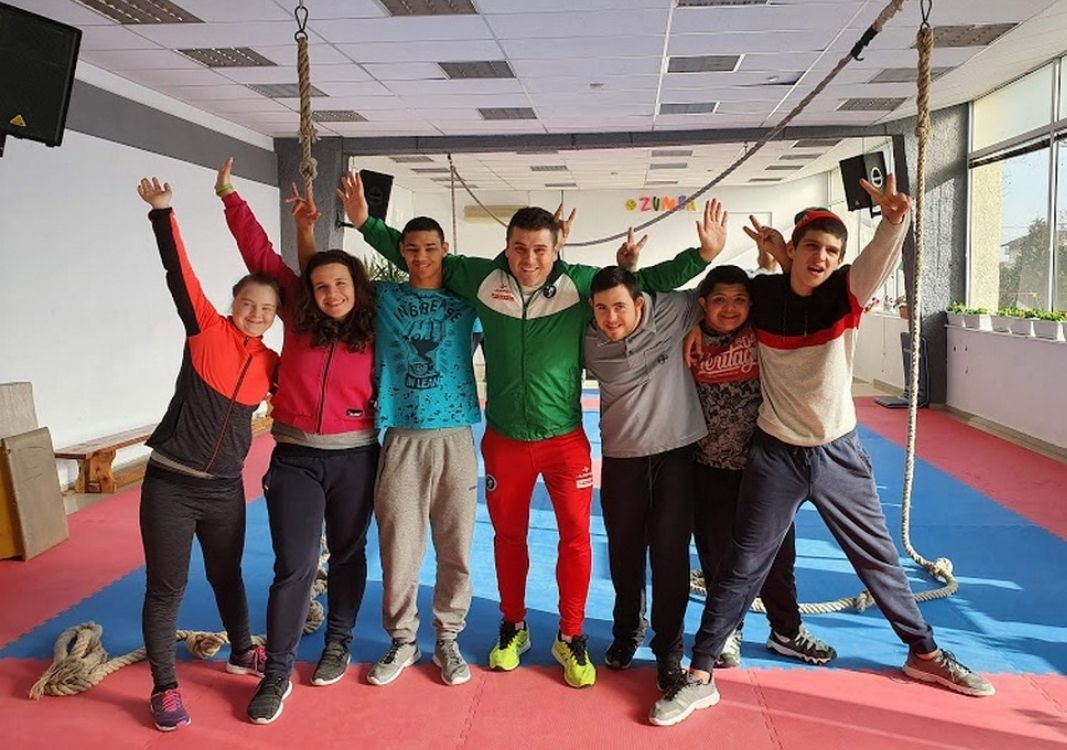Boyan is a 15-year-old adolescent from Sofia, one of those who grow up and manage to cope in life despite having the Down syndrome. He has surpassed most of his peers in physical abilities and is a multiple medalist at the European Games for young people with disabilities – Emil Open. In September last year the boy returned from the European Games for Youth with Motor and Mental Disabilities, held for the 9th time in Brno, Czech Republic. The Bulgarian youngsters won 6 gold, 5 silver and 3 bronze medals there, amid great competition from 12 participating countries.
"This is achieved with a lot of work and perseverance, and with many coaches who work in this field. But unfortunately, in Bulgaria sport remains in the background, and no one believes that it even exists for these children," says in an interview with BNR Boyan's mother – Borislava Vandova.

"We go abroad, but there are no such competitions in Bulgaria," she says. “Sport helps children to develop. There must be more specialists paid by the state, not to rely only on volunteers. The trainings are at least three hours a day, they are after the end of the school classes. The trainings continue at home and with perseverance the results are coming. So from a child with a mental problem who was absolutely dependent on someone else's help, I now have a completely independent child who can cope with the problems in life on his own. It is very difficult to work with our children – we, their parents, are aware of that. We cannot be therapists, physiotherapists, psychologists at the same time. As a parent, I would like to pursue my profession and thus be a full-fledged citizen of this society, and not be constantly at home to look after my child”.

In the school where Boyan trains, all young people are elite athletes and are preparing for high sports achievements. Upon their first steps there, though, they are completely unprepared, even without any communication skills, and some can even show aggression. After the meetings and the work with the coaches, there is no memory left of these conditions.
"These children have become great athletes who put a lot of effort into being real athletes and a full part of our society. They even have contact with athletes from other countries, have high goals, pursue them and know that they have something to be proud of," says in an interview for the BNR Slav Petkov, President of the Federation of Adapted Physical Ability for the Balkans and Black Sea Area (FAPA)/ The federation is focused on developing sports for people with special educational needs.

"The process for these athletes is difficult, it requires a lot of patience and strong nerves, and people who deal with children with disabilities are literally counted on the fingers of one’s hand. The problem is the lack of awareness that work is not so unattractive and it also requires more patience when it comes to children with mental health problems. Sport is one of the best ways for the social integration of these children and Boyan is the first with whom the federation works. Policies in this area are ineffective because they are not popular enough. Not only sports, all social services offered to people with special needs must be advertised”.

In addition to sports, the Adapted Physical Activity Federation is engaged in many other activities through which it teaches children to work. Since 2019 he has been working on a European project for children and youth with special needs. They built the first social confectionery in Sofia, called the "Little House", where young people learn to contribute to society. For them, social contacts are of great importance, so this pastry shop is a chance that not everyone in the country has.
Compiled by Gergana Mancheva (based on interviews of Tanya Lyubenova from BNR’s Hristo Botev channel)
English version Rositsa Petkova
Photos: fapabbs.eu, Fаcebook/ Slav Petkov, Borislava VandovaFrom September 19, for a month, the sky over the popular Belogradchik Rocks in northwestern Bulgaria will be filled with colorful balloons and magic. The fifth edition of the “Balloon Fiesta” promises five weekends, three types of flights, as well as..
The Bulgarian school “Dora Gabe” in Warsaw and its branch in Krakow will open the new school year on September 20 , BTA reports. The branch in Krakow is certified by a decree of the Council of Ministers for Bulgarian Sunday schools abroad and..
On the holiday of the Bulgarian capital city on September 17, when the Orthodox Church commemorates the holy martyrs Faith, Hope, Love and their mother Sophia, icons made of flowers and natural materials decorated the ancient church..
U.S. sanctions on NIS activated despite expectations of delay U.S. sanctions on Serbian oil company NIS – Naftna Industrija Srbije came into force on..
The second edition of the unique Blackthorn Festival will be held today in the village of Salash near Belogradchik, northeastern Bulgaria. The event..
The Earth and Man National Museum in Sofia is hosting the 33rd Sofia Exhibition of Minerals, Gemstones and Fossils , the institution announced. The..

+359 2 9336 661
